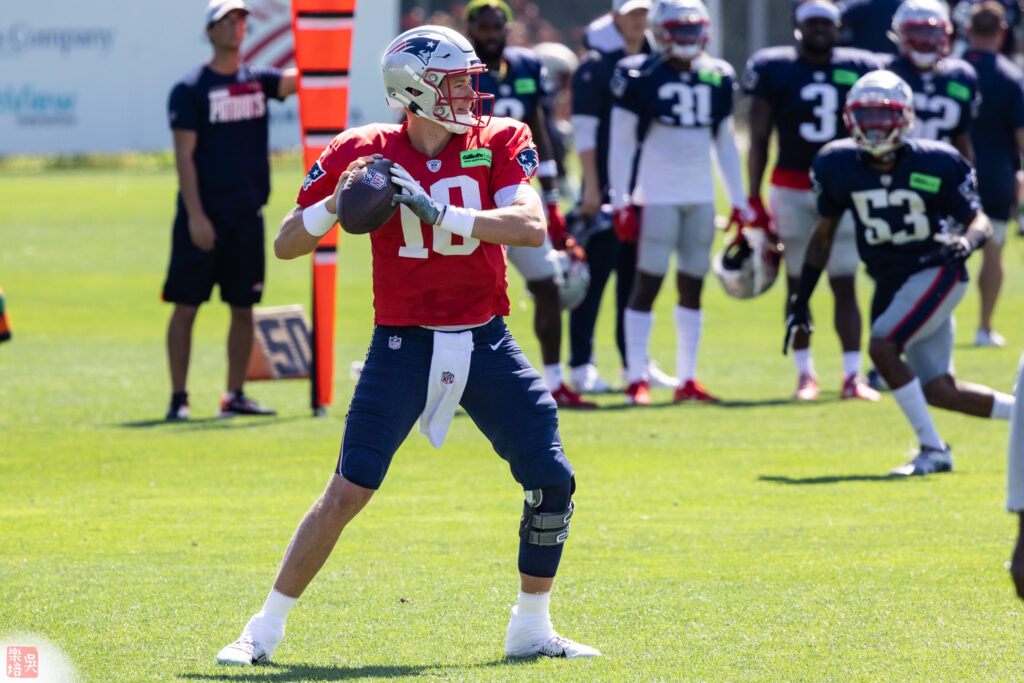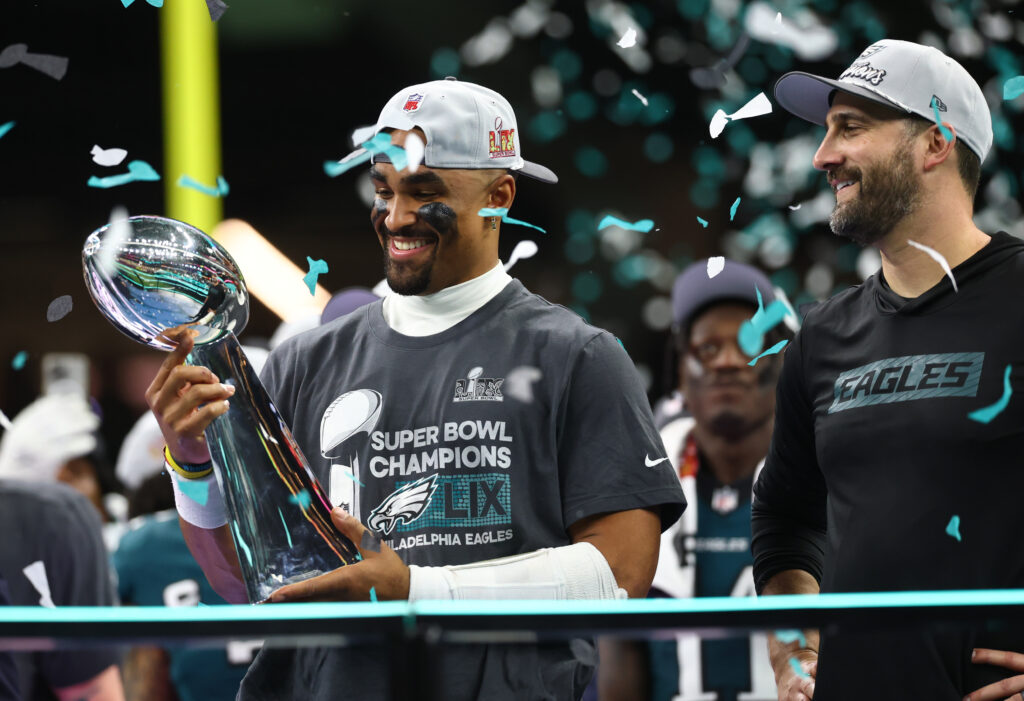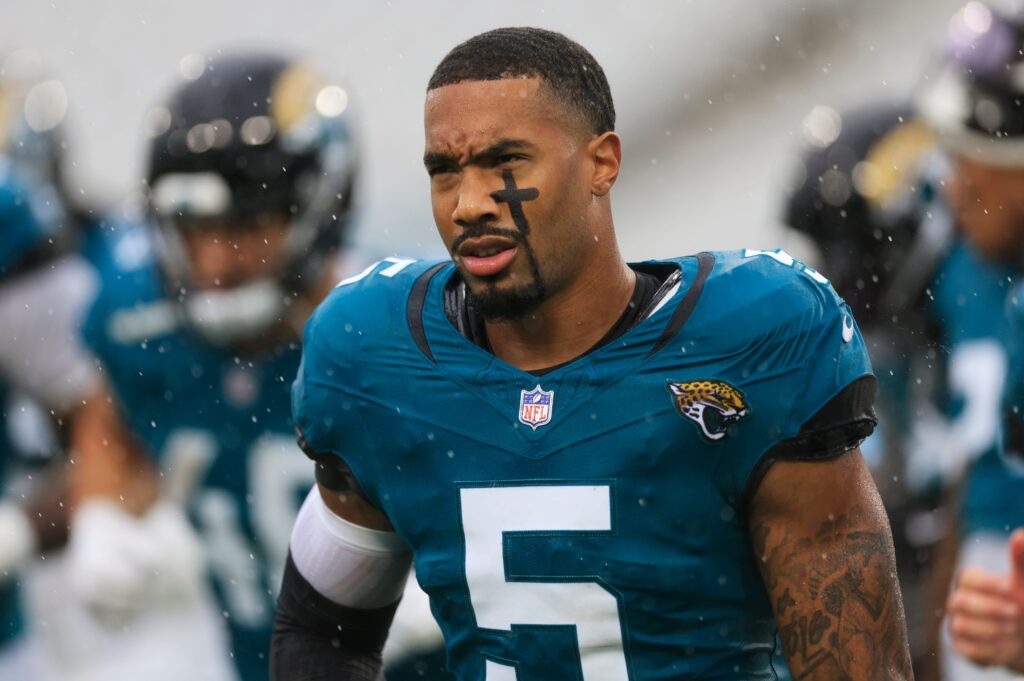The Patriots are now four years removed from Tom Brady’s departure, yet hope for a promising future is at an all-time low. Sitting at 1-4, New England has been outscored 72-3 in their last two games. Mac Jones looks broken; his internal clock is a mess as he’s rushing through decisions and panicking within the pocket. He’s thrown a pick-six in back-to-back weeks and was benched in both games.
The offensive line can’t hold up in pass protection or in the run game. The wide receivers are struggling to separate and this has all led to an offense that’s utterly non-functional. Somehow, this unit is performing worse with Bill O’Brien as Offensive Coordinator than it did with Matt Patricia.
Defensively, the Patriots are getting by without their two best players, Matthew Judon and Christian Gonzalez, but nothing they can do will overcome an offense this inept.
As New England stares down owning a top-10 to possibly top-five draft pick, the question is, how did they get here?
How Did the Patriots Get Here?
Poor Drafting
Anytime you are trying to figure out how an NFL team started to lose its way, you must examine recent drafts’ successes and failures. Since 2014, New England has struggled to bring talent into the building. For every hidden gem they were able to find in the middle to later rounds, there are far more pivotal misses, like receiver N’Keal Harry or running back Sony Michel.
This is the root cause of why New England is struggling. They are not a talented team.
In his last 12 drafts, here are the hits Belichick has found on offense: Rhamondre Stevenson, Michael Onwenu, Damien Harris, Joe Thuney, Shaq Mason, and James White: three running backs and three guards.
It doesn’t matter how good the coaching or the defense are. No team can survive this little success finding talent, especially when the talent you are finding, is at the least impactful positions on that side of the ball.
Belichick’s inability to draft effective offensive players is directly connected to Brady leaving and the current state of the organization.
Mac Jones Was a Bad Bet
The NFL is a quarterback league. This isn’t new, but what is new, is the types of quarterbacks that are excelling in today’s game. In the previous decade, the dominant pocket passers were shredding NFL defenses.
Peyton Manning, Tom Brady, Drew Brees. These Hall of Famers were not known for their physical dominance. Their accuracy, decision-making, and poise within the pocket led to their success.
In the modern game, we have better athletes dominating the quarterback position. Patrick Mahomes, Josh Allen, and Justin Herbert all have noticeable physical gifts that separate them from their peers.
Mac Jones has none of these. He’s not a plus athlete, his arm is one of the weakest among the NFL starters and his accuracy isn’t strong enough to offset these limitations. His path to being a difference-maker at the position was extremely narrow.
On top of that, it was telling he slipped to 15th overall within his own draft and was the fifth quarterback selected. The majority of the strong starting quarterbacks in today’s game do not fall past the 12th overall pick. This may feel like splitting hairs, but it’s true.
The NFL misses on a lot of quarterbacks at the top of the draft, but the majority of the hits do come within that top 12. Choosing to select one outside of that range, especially one as physically limited as Mac Jones, was counting on an outlier bet to hit.
Not Accepting Where They Were
The NFL is known for its “always compete” mindset. Unlike the NBA where teams will intentionally play for the future to better their odds of becoming title contenders, NFL teams will often sabotage their future in the name of winning now.
New England is no different. Following Brady’s departure, the Patriots drafted with a defensive-first mentality, signed Cam Newton, and went on to win seven games. In the process of doing this, New England missed an enormous opportunity to expedite their rebuild.
In 2020, the Patriots had a number of aging players on the roster, with Julian Edelman, Devin McCourty, and Stephon Gilmore being the most impactful. They also had impending free agents whom they did not intend to extend, such as standout guard Joe Thuney.
The right move would have been to sell off these expiring assets to contenders for any draft capital you could have gotten in return.
Joe Thuney specifically stands out as a mismanaged piece by the front office. Thuney was a homegrown, elite-level guard. Extending him made sense, especially considering the lack of other players worthwhile of keeping around long term. They also could have traded him and netted a nice draft pick in return. Instead, they chose to let him play out his final season, sign a monster extension with Kansas City in the offseason, and not even receive a compensation draft pick in return because of how many free agents they signed themselves in the offseason. This was inexcusable roster management.
Outdated Philosophy
It’s hard to tell if winning Super Bowls with a receiving corps made up of players like Philip Dorsett and Chris Hogan clouded Belichick’s vision, or if it was simply a defensive-minded coach wanting to win his way, but it’s indefensible to put this many assets into a defense in the modern NFL.
It’s not that it’s impossible to win with a defensive first team, we saw the 2015 Denver Broncos accomplish this and the 2013 Seattle Seahawks. The problem is these defenses were truly elite, some of the best we have seen over the last few decades of the NFL.
We know defense isn’t consistent year to year in the NFL. There are too many variables that impact it, including health, who you play, and high-level performance from unstable units like defensive backs. So building your team when your only path to contention is through an elite defense is another low-percentage bet Belichick relied on hitting.
Poor Coaching
This is the opposite of what you would expect from a Belichick team, but at this point, the team is on a multi-year run of subpar coaching from the top down. A lot of this is simply from brain drain. Retirements from Running Backs Coach Ivan Fears, Offensive Line Coach Dante Scarnecchia, and one of Belichick’s most trusted assistants Ernie Adams have become impossible to replace. There was also the loss of Offensive Coordinator Josh McDaniels, as he went on to become the Raider’s Head Coach in 2022.
It still falls on Belichick for not having replacements in line, or being unwilling to go outside of his inner circle to find help.
Between poor special teams play, situational blunders that cost them games against the Bengals and Raiders last year, the Matt Patricia Offensive Coordinator debacle of last year, and extreme conservatism on fourth downs, the coaching is no longer a strength for New England.
What Does the Future Hold?
For the first time since before the turn of the century, the Patriots are staring down a complete teardown. Mac Jones has shown he’s not the franchise quarterback this team can lean on, and Robert Kraft is facing the impossible task of trying to gracefully move on from a coaching legend.
Kraft likely needs to step in and force Belichick to become a seller at the trade deadline. Moving on from players like Kendrick Bourne, Josh Uche, and Hunter Henry can put this team in a position to stock up on some much-needed draft capital, and ensure they are in a position to draft Mac’s replacement this spring.
For Patriots fans, the last four years have been a taste of how the other half lives, and despite the calendar just turning to October, it’s time to look towards 2024.



